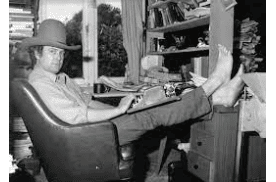The Guardian..
Frank Moorhouse, the celebrated Australian author and essayist best known for the Edith trilogy, has died at the age of 83.
His publisher, Penguin Random House, confirmed on Sunday that he had died that morning at a hospital in Sydney.
The author of 18 books, in addition to screenplays and essays, Moorhouse explored the Australian identity through the career of Edith Campbell Berry, a young woman who works as a diplomat in Europe, then Canberra, in three novels published between 1993 and 2011.
Grand Days, set in 1920s Europe, was judged to be ineligible for the Miles Franklin literary award in 1994 because it was deemed insufficiently Australian by the judges, a decision that led to Moorhouse taking legal action. Dark Palace, the second book in the trilogy, won the prize in 2001, while Cold Light was shortlisted for it in 2012.
…/…
Along with Clive James, Germaine Greer and Robert Hughes, Moorhouse became part of the “Sydney Push” – an anti-censorship movement that protested against rightwing politics and championed freedom of speech and sexual liberation.
In 1975 he played a fundamental role in the evolution of copyright law in Australia, in the case University of New South Wales v Moorhouse, which found that the unsupervised use of photocopying machines was infringing authors’ copyright.
High Court of Australia, University of New South Wales v. Moorhouse [1975] HCA 26; (1975) 133 CLR 1
Moorhouse wrote prolifically and with irreverence and humour of his passions – food, drink, travel, sex and gender. Early in his fiction, and later in his 2005 memoir, Martini, he wrote frankly about his own bisexuality and androgyny. In his writing, he said, he wanted to explore “the idea of intimacy without family – now that procreation is not the only thing that gives sex meaning”.
In 1985 he was appointed a Member of the Order of Australia for service to Australian literature, and he received several fellowships including at King’s College, Cambridge, a Fulbright fellowship, and at the Woodrow Wilson Center in Washington. His novel Forty-Seventeen won the Australian Literature Society’s gold medal in 1988.
Read more at




